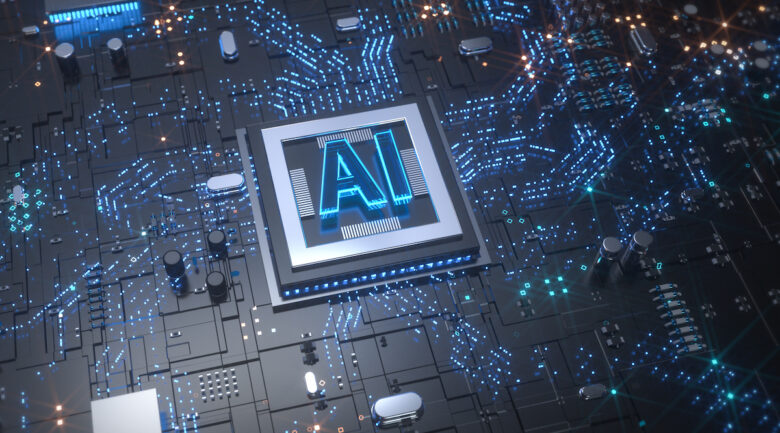Artificial Intelligence (AI) has become a game-changer for small and medium-sized businesses (SMBs), offering tools to automate tasks, analyze data, and improve decision-making. However, while AI is powerful, it’s not a magic solution for every business challenge. Understanding the limitations of AI—and where human expertise is still essential—can help SMBs strike the right balance between technology and the human touch.
In this blog post, we’ll explore where AI can help small businesses, its limitations, and why human creativity and judgment remain irreplaceable.
Where AI Excels for Small Businesses
AI is incredibly effective in areas that involve repetitive tasks, data analysis, and pattern recognition. Here’s where it can make a significant impact:
1. Automating Repetitive Tasks
AI shines in handling repetitive, time-consuming tasks that don’t require creativity or emotional intelligence.
- Customer Support: AI-powered chatbots like Tidio or ManyChat can handle FAQs, process orders, and provide 24/7 support, freeing up your team for more complex interactions.
- Administrative Work: Tools like QuickBooks use AI to automate bookkeeping, invoicing, and payroll, reducing errors and saving time.
By automating these tasks, AI allows small businesses to focus on growth and innovation.
2. Data Analysis and Insights
AI can process vast amounts of data quickly, uncovering trends and patterns that humans might miss.
- Marketing: Platforms like HubSpot use AI to analyze customer behavior and recommend personalized marketing strategies.
- Inventory Management: Tools like Shopify predict inventory needs based on sales trends, helping businesses avoid overstocking or stockouts.
These insights enable SMBs to make data-driven decisions and stay competitive.
3. Predictive Analytics
AI can forecast future trends by analyzing historical data, helping businesses plan ahead.
- Sales Forecasting: Tools like Zoho CRM predict future sales, allowing businesses to set realistic goals and allocate resources effectively.
- Customer Retention: Platforms like Yotpo analyze customer feedback to identify at-risk customers and suggest retention strategies.
Predictive analytics empowers SMBs to anticipate challenges and seize opportunities.
The Limitations of AI for Small Businesses
While AI offers many benefits, it’s not without its limitations. Here’s where AI falls short and why human expertise is still essential:
1. Lack of Emotional Intelligence
AI can’t replicate human empathy, intuition, or emotional understanding.
- Customer Relationships: While chatbots can handle simple queries, complex or emotionally charged issues require human interaction. For example, resolving a customer complaint about a defective product often requires empathy and problem-solving skills that AI can’t provide.
- Team Dynamics: AI tools like Officevibe can gather employee feedback, but it’s up to human leaders to interpret the data and foster a positive workplace culture.
2. Limited Creativity and Innovation
AI is great at analyzing existing data, but it struggles with true creativity and innovation.
- Product Development: AI can suggest product ideas based on market trends, but it’s human creativity that brings those ideas to life. For example, designing a unique product or crafting a compelling brand story requires a human touch.
- Marketing Campaigns: While tools like Canva use AI to suggest design templates, it’s your team’s creativity that turns those templates into engaging visuals.
3. Dependence on Quality Data
AI’s effectiveness depends on the quality and quantity of data it’s trained on.
- Bias and Errors: If the data used to train AI is biased or incomplete, the results can be flawed. For example, an AI tool might recommend marketing strategies that don’t resonate with your target audience if the data isn’t representative.
- Data Privacy Concerns: Small businesses must ensure they’re using AI tools that comply with data privacy regulations like GDPR or CCPA.
4. High Initial Setup and Learning Curve
While many AI tools are user-friendly, some require time and effort to set up and integrate into existing workflows.
- Implementation Costs: Tools like HubSpot or Shopify may have subscription fees, and training your team to use them effectively can take time.
- Ongoing Maintenance: AI systems need regular updates and monitoring to stay effective, which can be a challenge for small teams with limited resources.
Where Human Expertise is Essential
Despite its limitations, AI is a valuable tool—but it works best when paired with human expertise. Here’s where humans still shine:
1. Strategic Decision-Making
AI can provide data-driven insights, but it’s up to humans to interpret that data and make strategic decisions.
- Business Growth: While AI can predict sales trends, it’s your team’s creativity and vision that determine how to capitalize on those trends.
- Risk Management: AI can identify potential risks, but humans are better equipped to weigh the pros and cons and make informed decisions.
2. Building Relationships
AI can’t replicate the personal connections that drive customer loyalty and employee engagement.
- Customer Experience: A friendly, empathetic conversation with a customer can turn a negative experience into a positive one—something AI can’t achieve.
- Team Collaboration: Human leaders inspire and motivate teams, fostering a culture of innovation and collaboration.
3. Creativity and Innovation
Humans excel at thinking outside the box and coming up with innovative solutions.
- Product Design: While AI can suggest ideas, it’s human creativity that turns those ideas into unique, marketable products.
- Storytelling: Crafting a compelling brand story or marketing campaign requires a human touch that resonates with your audience.
Balancing AI and Human Expertise
The key to success for small businesses is finding the right balance between AI and human expertise. Here’s how to do it:
- Start Small: Use AI tools like Tidio or Mailchimp to automate repetitive tasks and gather insights.
- Leverage Data: Use AI-driven analytics to inform your decisions, but rely on human judgment to interpret the results.
- Focus on Relationships: Use AI to enhance customer and employee experiences, but prioritize human interaction for complex or emotional issues.
- Invest in Training: Ensure your team understands how to use AI tools effectively and integrate them into your workflows.
AI is a powerful tool for small businesses, but it’s not a replacement for human expertise. By understanding its limitations and leveraging its strengths, SMBs can use AI to automate tasks, analyze data, and make better decisions—while still relying on human creativity, empathy, and judgment to drive growth and build meaningful relationships.
The future of small business isn’t about choosing between AI and humans—it’s about finding the perfect balance between the two. Start exploring AI tools today, and see how they can complement your team’s unique strengths!




